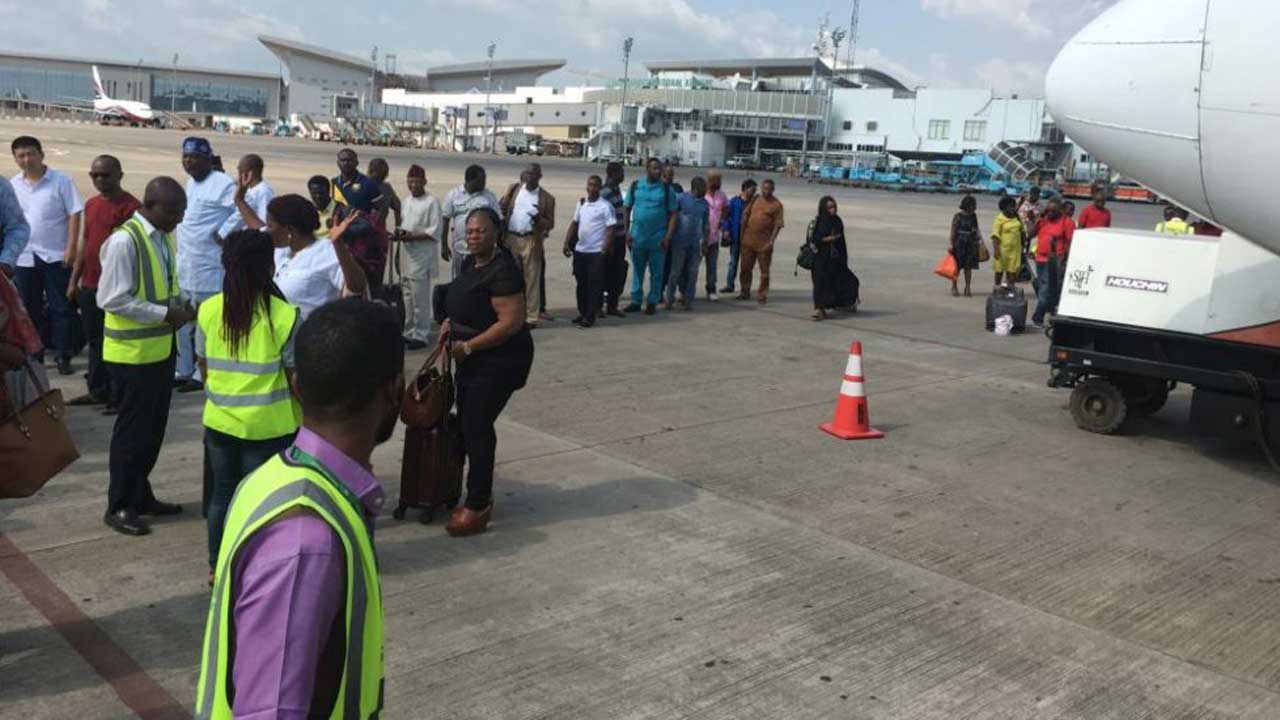Travellers may face flight disruptions as aviation union workers have announced plans for a one-day strike to protest the federal government’s decision to deduct 50 percent of internally generated revenues (IGR) from aviation agencies.
The strike is scheduled for August 21, according to a memo signed by the leaders of five unions.
The memo, titled “Save Aviation From Collapse – Notice Of Nationwide Protest” and dated August 14, was issued by the National Union of Air Transport Employees (NUATE), Air Transport Services Senior Staff Association of Nigeria (ATSSSAN), Association of Nigeria Aviation Professionals (ANAP), National Association of Aircraft Pilots and Engineers (NAAPE), and Amalgamated Union of Public Corporation Civil Service Technical and Recreation Services Employees (AUPCTRE).
The unions stated that the warning strike is intended to demand the exemption of the Nigeria Civil Aviation Authority (NCAA), Federal Airports Authority of Nigeria (FAAN), Nigeria College of Aviation Technology (NCAT), Nigerian Meteorological Agency (NiMet), and Nigerian Safety Investigation Bureau (NSIB) from the 50 percent revenue deductions.
READ ALSO: Tinubu sacks FAAN, NAMA MDs, 4 others in aviation
“All workers of the NCAA, FAAN, NAMA, NiMet, NCAT, and NSIB, joined by other aviation workers in solidarity, are hereby directed to embark on peaceful protests at all airports nationwide on Wednesday, August 21, 2024,” the unions announced.
The unions expressed concerns that the deductions are causing significant financial strain on the agencies, which are cost recovery organizations and not profit-making entities. They warned that critical safety activities are at risk of being halted due to the financial pressure, potentially leading to industry dysfunction.
The unions have urged their members to comply with the strike directive and have called on all state councils, branches, and executives to enforce the directive without compromise.
Earlier, on May 30, the Nigerian Airspace Management Agency (NAMA) called for a reversal of the 50 percent revenue deduction, citing financial constraints that hinder its ability to maintain and upgrade critical infrastructure.

 Entertainment6 days ago
Entertainment6 days ago
 Health1 week ago
Health1 week ago
 Health4 days ago
Health4 days ago
 Football1 week ago
Football1 week ago
 Football1 week ago
Football1 week ago
 Crime5 days ago
Crime5 days ago
 Education6 days ago
Education6 days ago
 Health6 days ago
Health6 days ago

